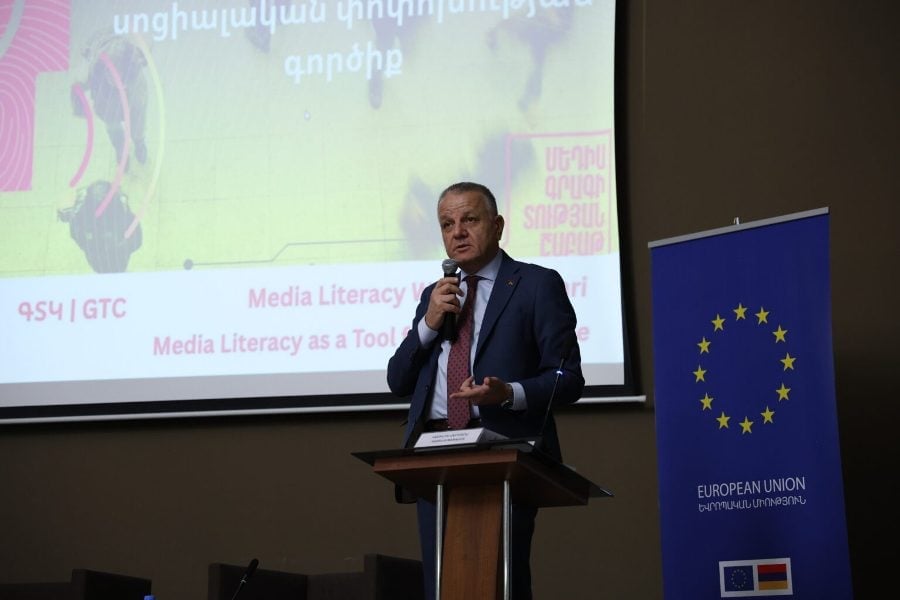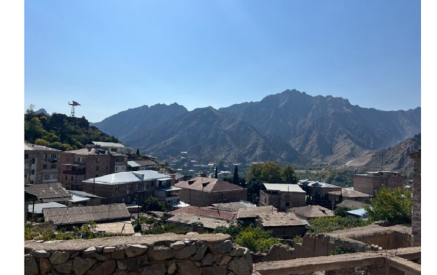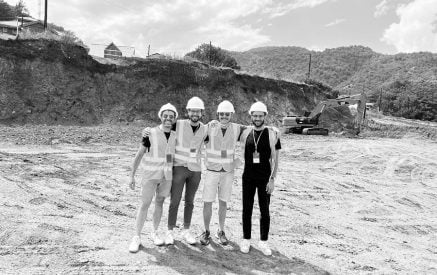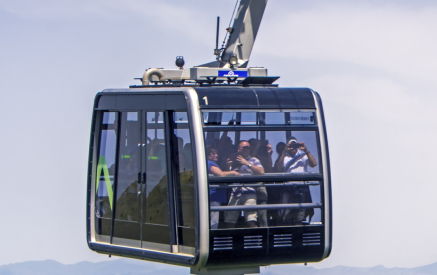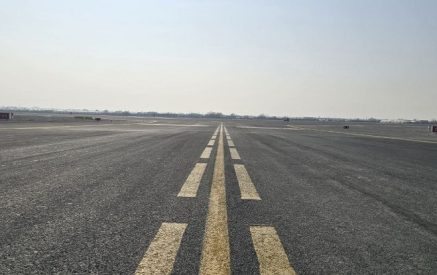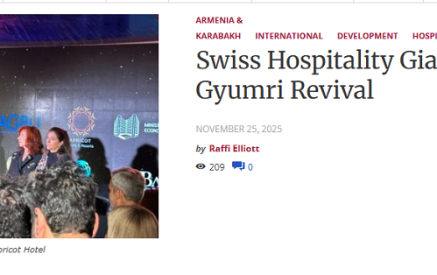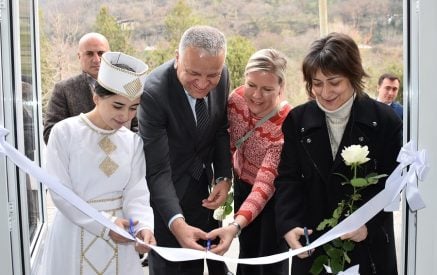The European Union Delegation to Armenia and the Public Journalism Club (PJC) held a roundtable discussion in Gavar on November 12, titled “Media Literacy as a Tool for Social Change” as part of Media Literacy Week in Armenia.
The event was attended by journalists, media professionals, civil society representatives, students, and community actors from Yerevan and the Gegharkunik region to discuss the role of media literacy in strengthening informed public dialogue.
The discussion focused on practical approaches to responsible content creation, amplifying local narratives, and ensuring diversity in media representation.
At the event, H.E. Vassilis Maragos, Ambassador, Head of the EU Delegation to Armenia delivered a welcome speech.
Read also
“Today in Gavar, we are marking an important stage in promoting media literacy, one that is crucial for strengthening democracy across Armenia. From Yerevan to Gyumri, the European Union remains committed to supporting communities in fostering informed and constructive dialogue, as well as empowering citizens to develop critical thinking and engage actively in public life. Through close cooperation with our partners, we strive to contribute to building a more informed, sustainable, and resilient Armenia by promoting the dissemination of reliable information and encouraging civic participation,” stated EU Ambassador Vassilis Maragos.
Hayarpi Baghdasaryan, a journalist from the “Infocom” media platform, and Zhanna Bekiryan, a journalist from the “Hetq” Media Factory, presented tools that promote media literacy and practical approaches to creating community-based content that fosters solutions journalism and public engagement.
“To doubt, verify, analyze — these are the steps each of us, regardless of profession, must take when we receive any piece of information. A journalist’s work is somewhat different: before turning any report into a news item, we dig into the facts, search for and analyze the data, separate facts from opinions, so as to present the information accurately, reliably, and in the most complete context possible,” emphasized Zhanna Bekiryan.
Nazik Armenakyan, documentary photojournalist at 4Plus, and Lianna Asoyan, Head of the “Blejan” NGO, presented the issues of diversity of topics in the media and the importance of working with sensitive subjects.
“At 4Plus, we value diversity and inclusivity of topics, as they bring visibility to stories that often remain outside the mainstream media flow. For us, photography is a tool to break stereotypes and uncover social issues. Through our stories, we aim to raise questions that make the viewer think, understand, and see beyond just the image,” said Nazik Armenakyan.
The discussions also touched upon making community voices heard through digital tools, ethical approaches to media content presentation, and the principles of diversity and inclusion in the media.
“Coverage of local issues should be more in-depth and evidence-based whether it concerns the use of water resources and the consequences of their pollution, the impact of climate change on agriculture and biodiversity, or the quality of public service delivery after community consolidation. When media outlets approach such topics through facts, data analysis, and real community stories, they not only increase public awareness and trust toward local media but also contribute to the development of media literacy enabling citizens to distinguish fact from opinion and reduce the impact of informational manipulation,” said Lianna Asoyan.
The speakers emphasized the importance of cooperation between the media, civil society, and communities to strengthen constructive public communication and dialogue.
At the end of the event, the speakers encouraged continued collaboration among media representatives, civil society actors, and youth initiatives for the well-being of communities and the advancement of media literacy, fostering the development of resilient communities.
Background
Media Literacy Week in Armenia is organised by the Media Initiatives Center and the Ministry of Education, Science, Culture and Sports of the Republic of Armenia to be held from November 8 to 15, 2025.
Media Literacy Week has been held in Armenia for eight years, and this year it will be organized under the theme “Media Literacy and Responsible Digital Citizenship.”
Media Literacy Week is an international initiative led by UNESCO, held every autumn with the aim of raising greater awareness about the importance of understanding, analyzing, and using media in a literate and effective way.
The European Union supports media literacy efforts across Armenia as part of broader cooperation to strengthen democratic resilience, independent media, and public participation.
12 November 2025, Gavar



















































